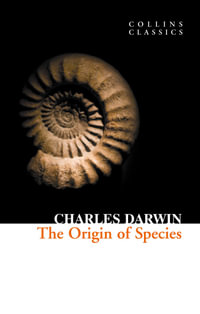
At a Glance
Paperback
$15.34
Aims to ship in 10 to 15 business days
When will this arrive by?
Enter delivery postcode to estimate
Living secretly beneath the Paris Opera House, ‘The Phantom of the Opera’, Erik has haunted those who work there with his demands and shrouded the opera house in fear with the legend of his disfigured face. When Christine joins the company, a young woman with a beautiful voice, Erik is instantly smitten and secretly teaches her to become a great singer. He soon develops an obsessive love for his beautiful protégé, even though she has fallen for her childhood friend, resulting in her disappearance during a performance and sparking a tragic and terrifying chain of events.
One of the most well-known and well-loved gothic horror stories, Leroux’s suspenseful tale of unrequited love, passion and tragedy is both dark and moving in its portrayal of Erik, the anti-hero in his yearning for Christine.
About The Author
Gaston Louis Alfred Leroux (6 May 1868, Paris, France – 15 April 1927) was a French journalist and author of detective fiction.
In the English-speaking world, he is best known for writing the novel The Phantom of the Opera (Le Fantôme de l'Opéra, 1910), which has been made into several film and stage productions of the same name, such as the 1925 film starring Lon Chaney, and Andrew Lloyd Webber's 1986 musical. It was also the basis of the 1990 novel Phantom by Susan Kay.
Leroux went to school in Normandy and studied law in Paris, graduating in 1889. He inherited millions of francs and lived wildly until he nearly reached bankruptcy. Then in 1890, he began working as a court reporter and theater critic for L'Écho de Paris. His most important journalism came when he began working as an international correspondent for the Paris newspaper Le Matin. In 1905 he was present at and covered the Russian Revolution. Another case he was present at involved the investigation and deep coverage of an opera house in Paris, later to become a ballet house. The basement consisted of a cell that held prisoners in the Paris Commune, which were the rulers of Paris through much of the Franco-Prussian war.
He suddenly left journalism in 1907, and began writing fiction. In 1909, he and Arthur Bernède formed their own film company, Société des Cinéromans to simultaneously publish novels and turn them into films. He first wrote a mystery novel entitled Le mystère de la chambre jaune (1908; The Mystery of the Yellow Room), starring the amateur detective Joseph Rouletabille. Leroux's contribution to French detective fiction is considered a parallel to Sir Arthur Conan Doyle's in the United Kingdom and Edgar Allan Poe's in America. Leroux died in Nice on April 15, 1927, of a urinary tract infection.
ISBN: 9780007420278
ISBN-10: 0007420277
Series: Collins Classics
Published: 1st January 2011
Format: Paperback
Language: English
Number of Pages: 320
Audience: General Adult
Publisher: HarperCollins Publishers
Country of Publication: GB
Dimensions (cm): 24.9 x 16.5 x 4.7
Weight (kg): 0.2
Shipping
| Standard Shipping | Express Shipping | |
|---|---|---|
| Metro postcodes: | $9.99 | $14.95 |
| Regional postcodes: | $9.99 | $14.95 |
| Rural postcodes: | $9.99 | $14.95 |
How to return your order
At Booktopia, we offer hassle-free returns in accordance with our returns policy. If you wish to return an item, please get in touch with Booktopia Customer Care.
Additional postage charges may be applicable.
Defective items
If there is a problem with any of the items received for your order then the Booktopia Customer Care team is ready to assist you.
For more info please visit our Help Centre.
























